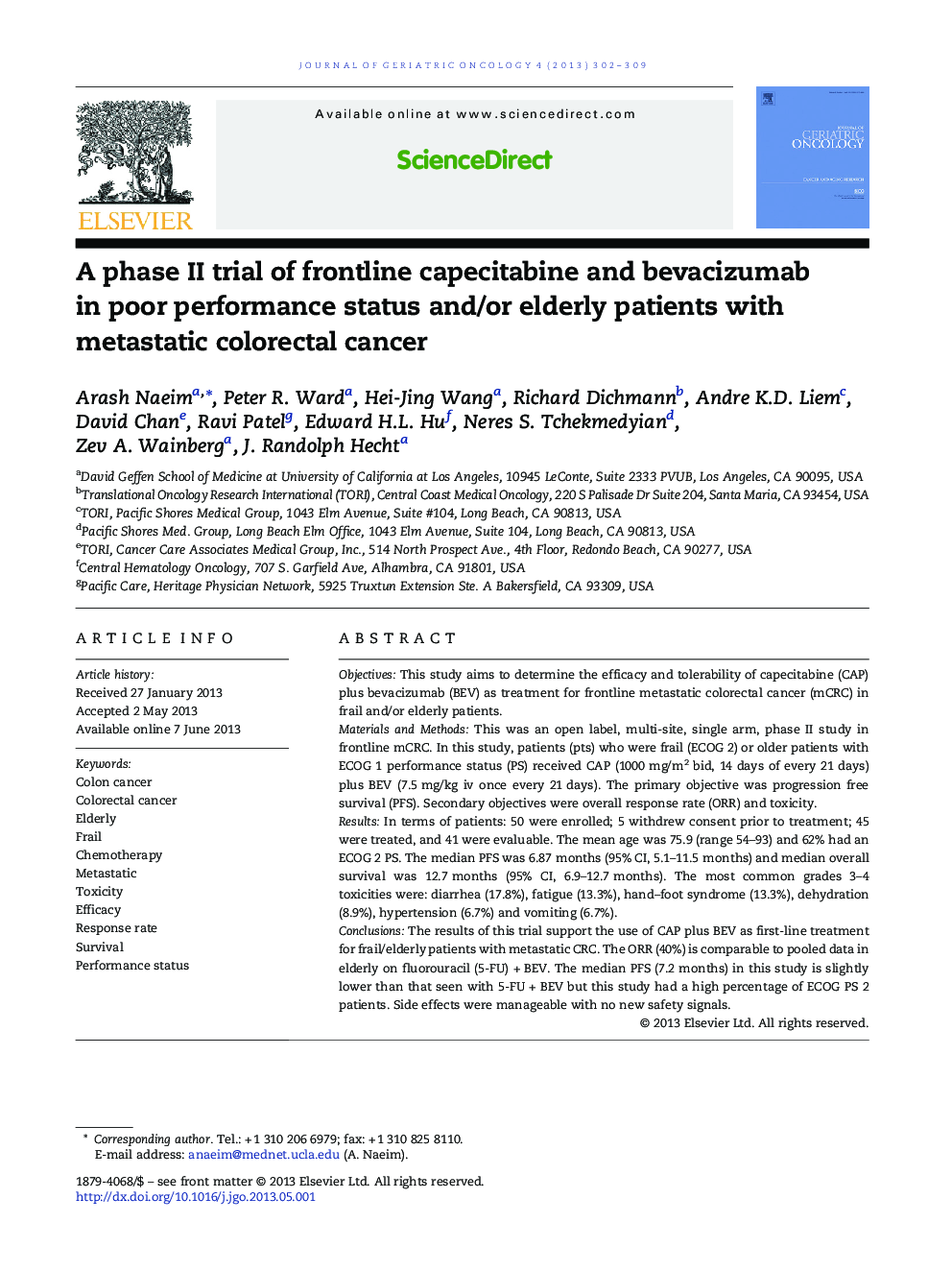| Article ID | Journal | Published Year | Pages | File Type |
|---|---|---|---|---|
| 1912864 | Journal of Geriatric Oncology | 2013 | 8 Pages |
ObjectivesThis study aims to determine the efficacy and tolerability of capecitabine (CAP) plus bevacizumab (BEV) as treatment for frontline metastatic colorectal cancer (mCRC) in frail and/or elderly patients.Materials and MethodsThis was an open label, multi-site, single arm, phase II study in frontline mCRC. In this study, patients (pts) who were frail (ECOG 2) or older patients with ECOG 1 performance status (PS) received CAP (1000 mg/m2 bid, 14 days of every 21 days) plus BEV (7.5 mg/kg iv once every 21 days). The primary objective was progression free survival (PFS). Secondary objectives were overall response rate (ORR) and toxicity.ResultsIn terms of patients: 50 were enrolled; 5 withdrew consent prior to treatment; 45 were treated, and 41 were evaluable. The mean age was 75.9 (range 54–93) and 62% had an ECOG 2 PS. The median PFS was 6.87 months (95% CI, 5.1–11.5 months) and median overall survival was 12.7 months (95% CI, 6.9–12.7 months). The most common grades 3–4 toxicities were: diarrhea (17.8%), fatigue (13.3%), hand–foot syndrome (13.3%), dehydration (8.9%), hypertension (6.7%) and vomiting (6.7%).ConclusionsThe results of this trial support the use of CAP plus BEV as first-line treatment for frail/elderly patients with metastatic CRC. The ORR (40%) is comparable to pooled data in elderly on fluorouracil (5-FU) + BEV. The median PFS (7.2 months) in this study is slightly lower than that seen with 5-FU + BEV but this study had a high percentage of ECOG PS 2 patients. Side effects were manageable with no new safety signals.
